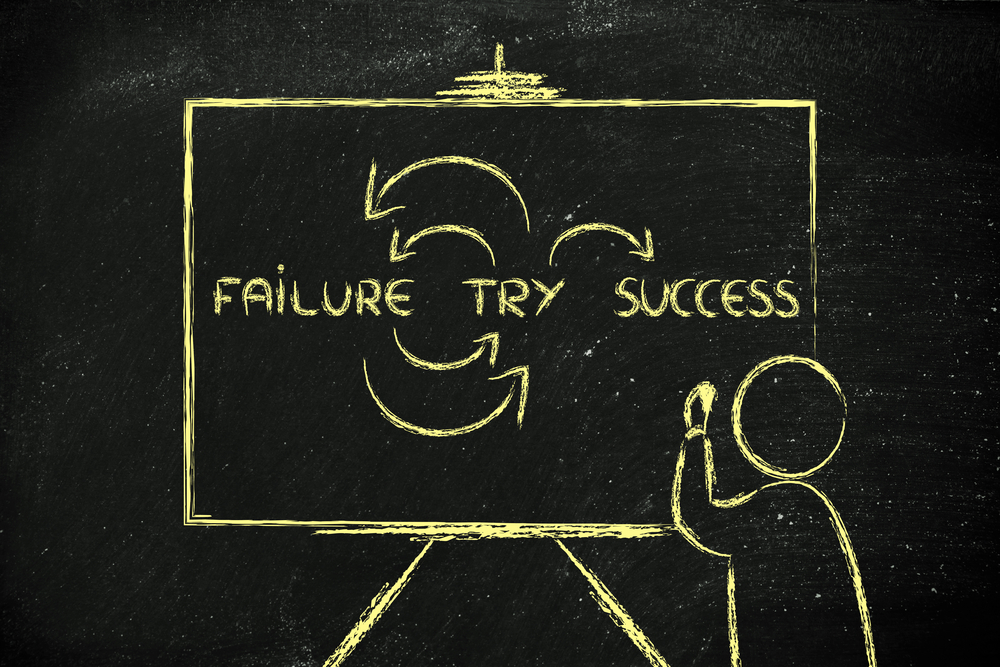Our mistakes in pursuit of learning are the burpees, extra gym time, and leg days of our mental fitness for most of us. For those where mistakes are measured in cost or time (not life impact or safety), your mistakes measure how hard you are pushing yourself to grow. While making a mistake never feels good, your response to the situation determines your return-on-misfire (ROM).
Three Ideas to Help Mine Your Mistakes for Growth
1. Conduct Postmortems on Decision Misfires
In many organizations, project postmortems are commonplace. After wrapping up an initiative, individuals gather to reflect on what worked, what didn’t, and what they need to do the next time differently. Strive to adopt this approach for your misfires. Ideally, invite a trusted source (a swim buddy) to help you with the work. Ask and answer (and capture it in your professional journal):
- What was the impact of my misfire?
- How did I frame the original problem I was trying to solve?
- What were my expectations for the outcome?
- What were my assumptions going into this issue?
- What assumptions broke down and failed? Why?
- Was my original framing of the problem wrong?
- What was the root cause of the misfire?
- What insights can I take away from this to improve the outcome next time?
Power Tip: Add in premortems. The premortem is an excellent critical thinking activity to help remind you of all of the potential areas for misfires. Draw upon your journal content from prior situations to attempt to tune your approach to the current problem. Use the questions above and adjust to future tense.
2. Mistakes with People—Apologize and ask for Input
For anyone involved in managing formally or informally, mistakes with people are at the top of the list of common misfires. Unlike the suggestions above for decisions, the situations are often emotional and carry high relationship costs, including losing trust, which places future opportunities to collaborate in jeopardy.
While the costs are high, most misfires with people are repairable and serve as valuable lessons for future interactions. I’m a fan of the always-be-the-better-person school of human engagement. In situations where you ruffled feathers or wounded egos, work hard to muster a heartfelt apology. Don’t attempt to rationalize your behavior—just apologize and admit you misfired in the moment.
Ask how you might handle the situation better in the future. The extra step of asking for help in improving moving forward is a powerful salve for wounded egos and ruffled feathers. Focus on understanding how adjusting a behavior or two might yield an improved engagement the next time. Don’t spend too much time analyzing the prior behavior—this is all about Marshall Goldsmith’s version of feed-forward.
3. Communication Mistakes—Become a Wordsmith
Your words can wound or heal. In settings where you believed you had a good idea or were in the right, chances are, you failed as a communicator.
Become a student of words and their impact and strive to select those that show empathy, elicit input, and award autonomy to others.
Beware of the “I want/I need” discussions where you lead with positions and don’t strive to uncover interests.
Here are some questions to help you learn from the misfire and better plan for future persuasion encounters.
- Did you emphasize I want with your approach?
- Did your approach suggest they needed to do more or do something different?
- Did you take the time to explain your situation and ask how they might approach it before offering your conclusion?
- Did you ask them how this might impact them and how they might want to handle it?
- Did you offer multiple choices? Did you ask them what their unique choice might be?
As you move forward, commit to thinking through and designing your conversations for a positive effect. When it comes to engaging with others for an “ask” remember the Persuasion Cycle described by Dr. Mark Goulston in Just Listen: resisting to listening to considering to doing to glad they did. Most of us move in steps when presented with something new and different. Help people move gently through the process.
The Bottom-Line for Now:
A mistake—especially a big one can be crushing if you let it. Don’t. As suggested above, admit and apologize and then strive to find the lesson(s) learned. Take the consequences in stride, and if you’re in a healthy, learning-focused culture, your proper approach quickly moves your mistake to yesterday’s news.
I carry the memory of my mistakes with me as a reminder to keep trying to get better. Give yourself some grace to move on from the momentary funk a mistake generates and double-down on getting better moving forward. We can’t alter the past, but we can impact the future.
![]()

